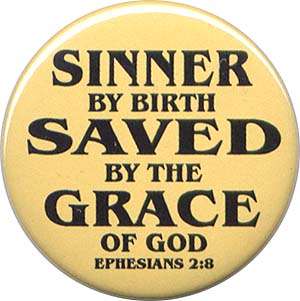"He (the Lord) has sent me to bind up the broken hearted and to proclaim liberty to the captives - deliverance from the prison for those enslaved".
Isaiah 61: 1.
"Most of our brother Christians showed unbounded love and loyalty, never sparing themselves and thinking only of one another. Heedless of danger, they took charge of the sick, attending to their every need and ministering to them in Christ, and with them departed this life serenely happy; for they were infected by others with the disease, drawing on themselves the sickness of their neighbors and cheerfully accepting their pains. Many, in nursing and curing others, transferred their death to themselves and died in their stead".
Dionysius.
Those of us who think we currently have a problem at present need to seriously consider the following...
Europe in the mid 14th century was not a healthy place to be. Between 1347 and 1351, it is estimated that the Black Death was responsible for killing around two thirds of Europe's entire population - around 200 million souls as it spread across from Africa and the East.
This wasn't the first horror of its kind. From 165-180 AD, an outbreak of what may well have been smallpox or ebola caused a swathe of deaths (around 5,000 a day) in what is now termed the Plague of Cyprian and another outbreak came in the 7th century - the Justinian Plague, wiping out around 40% of the population.
In the year of 1527, the awful scourge of the Black Death spread horribly once more through Europe, and in August of that year, it arrived within the gates of the University town of Wittenburg in Germany.
It had only been a handful of years since this place had found itself at the centre of momentus events that would change the nature of Europe as deeply as any plague.
At the centre of what shifted the world was a man named after Saint Martin of Tours - a Roman soldier of the 4th century. Named so because he was baptised in Eisleben on the saint's day (November 10th, 1483), he, like his name-sake, would renounce his allegiance to higher authority to fulfil his work as a soldier of Christ.
As the deadly disease reached the doors of his own home, Martin Luther and his pregnant wife Kathrine proceeded to turn their residence into a ward for the sick and the dying, to care for their bodies but also to provide them with the eternal comfort of Jesus Christ, through God's word, and to those that believed, through the sacrament of the Lord's body and blood.
Death was no stranger to the beloved theologian. A year before the plague, He and Katherine lost their second child, Elizabeth, just months after her birth - something that was to be evidenced again in 1529 with the loss of their third child, Magdalene.
In his own family, Luther had been one of eight children, but only one of his brothers and three of his sisters survived into adulthood.
It would have been easy for the good doctor and his family, then, to leave the university in the face of such tragedy - to distance themselves from death. They were valued members of the community, after all, and no doubt could have simply expected the hospital and perhaps others to aid the sick, but Martin understood that when such tragedy strikes, the role of the Christian is to place his love for God first by seeking to do what is genuinely good for neighbour, and that meant bringing the only freedom which matters to the lost and the dying - the freedom that Christ gives us in His dying and rising for our sins.
This manner of bold affirmation of the Gospel is why Wittenburg became the centre of change in first Germany, and then across the rest of Europe.
In the years prior to 1521, the Roman Church's response to the general troubles of the people under its authority had been to fleece them of their wealth through either selling them 'rights' to numerous reductions of years in purgatory through a papal indulgence, or by their attending, for a fee, to the various collections of 'holy' relics across the empire. The church, in other words, sought to prey upon the fears taught in to people's religious affections concerning death by highlighting these to take their wealth. Religion became a way to dispel such anxieties, but only for the right price.
Luther knew, as the Apostles taught, that the only way to find true peace and freedom before God was through what had been freely made ours in the coming of Jesus Christ, and that life was the only means of salvation for each of us. This is what he diligently shared to the sick brought to his home.
It was amongst these very troubles that he also began to pen his famous hymn -
A safe stronghold our God is still, a trusty shield and weapon.
All fascinating stuff, someone might say, but what has it to do with today? Times have moved on, and there really isn't a need for the church to take such actions now... we can leave the matter in the hands of scientists, politicians and our health service.
And there, indeed, is the problem. If the church is now generally perceived as having no key role, what is it meant to be doing?
In a recent expose of the development of underground or micro churches, Brian Sanders has identified a key problem that is leading to the irrelevance and ossification of more mainline denominations. Taking the example of what is termed a 'sunk cost bias' in the commercial world (projects which keep eating vast amounts of money and time, but will never become profitable or genuinely worthwhile), he speaks of how so much of what is currently occurring, especially in times of crisis, is unmasking the church as naked when it comes to providing an effective and sustainable responses to basic spiritual needs.
"We continue doing what we've always done because it would be too painful to shutter the operation, admit we are failing, and abandon the effort put into our endeavours... Some of this can most certainly be attributed to pride, because in such conditions, it becomes increasingly difficult to admit we made a mistake. Change becomes hard. Courage is needed to face what must be done" (Underground church).
What drove Luther and his beloved wife to total service wasn't a whim to try a church growth program or a method of displaying religious piety, but a burning desire to share the essential life, death and resurrection of the Son of God to those in desperate need. Through water, paper and ink, bread and wine, notes Mike Horton, God seeks to come to us, and Martin understood his role was to share such truth through the vital good news of the justification of the unjust purely by God's unearned grace through trust in the righteousness of Christ alone.
Reformation today, as then, is all about returning back to the this same vital life and message of Christ, and allowing this to nourish and prompt us towards doing not what is safe, but what is essential for the day in which we find ourselves.
The church shows itself to truly be church when it steps out in this fashion, because it comes to understand that seeking to work or construct on any other foundation, however popular in the moment, will fail.
The day came when Luther faced his own demise, his last words being as vital as all that the Gospel reveals.
"All men are beggars".
Let us lead others, like this man, to the living waters of Christ saving us.





